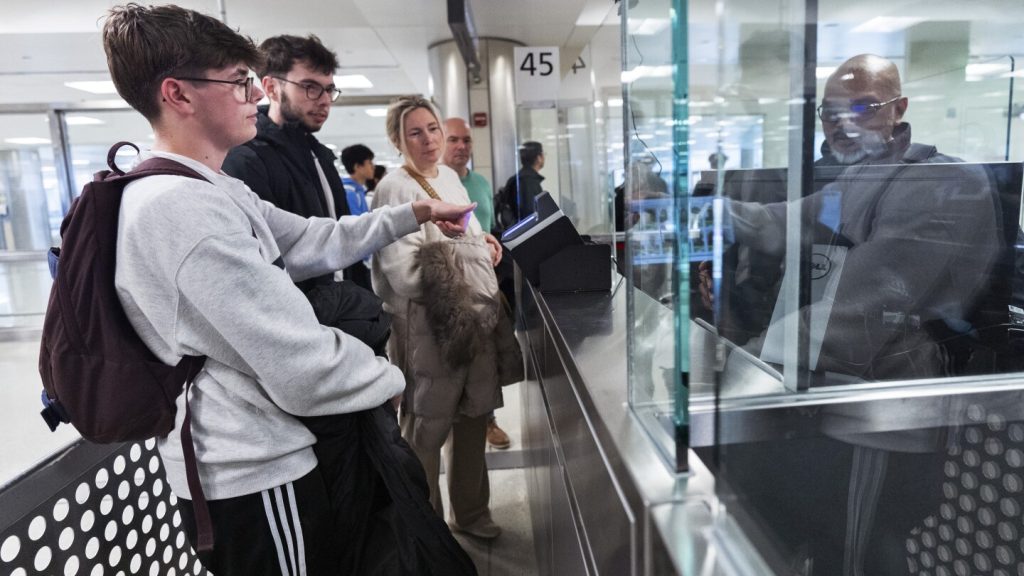As the travel industry continues to recover from pandemic-related setbacks, U.S. Customs and Border Protection is implementing new technologies to process the increasing number of passengers traveling internationally. One such technology is the Mobile Passport Control app, which allows travelers to upload their information and bypass long lines at passport control. With events like a rare solar eclipse and the Olympics in Paris driving international travel, the need for efficient processing methods is more important than ever.
During fiscal year 2023, CBP processed over 394 million travelers, a 24% increase from the previous year. The agency is seeing a 31% increase in travelers at the country’s top 20 airports, while average wait times are also increasing. However, some airports have managed to keep wait times stable or even decrease them. For example, JFK Airport in New York saw a decrease in wait times while processing 33% more travelers. Additionally, more families are traveling internationally together, further increasing the need for efficient processing methods.
CBP is increasingly utilizing app-based technologies to expedite the movement of passengers through airports. The Mobile Passport Control app, available to U.S. citizens, lawful permanent residents, certain Canadians, and travelers from Visa Waiver Program countries, allows passengers to upload their information and be directed to a separate line for processing. The agency is working to promote the app through partnerships with airlines and signage at airports, resulting in a record 4.1 million travelers using the app last year.
In September, CBP introduced an app specifically for Global Entry passengers, allowing low-risk travelers to pass through customs and passport control more quickly. The agency has seen a record number of applications for Global Entry, prompting efforts to streamline the application process. Despite complaints about long processing times and appointment availability, CBP is working to make the program more accessible to travelers by allowing for more online renewals and airport appointments.
Starting on October 1, fees for Trusted Traveler Programs like NEXUS and Global Entry will increase, with the cost of Global Entry rising from $100 to $120. However, the fees will now cover all children under 18, regardless of the program. Approval for these programs will still be valid for five years. The agency is also looking into future technologies, such as E-Gates for Global Entry passengers, where travelers can bypass officers and use facial recognition for customs and passport control.
Looking ahead, CBP is exploring the concept of smart queuing, where passengers are assigned to specific lines based on information provided in the app, such as declaring goods. By leveraging technology and innovative solutions, Customs and Border Protection aims to enhance the travel experience for international passengers and improve efficiency at ports of entry.


